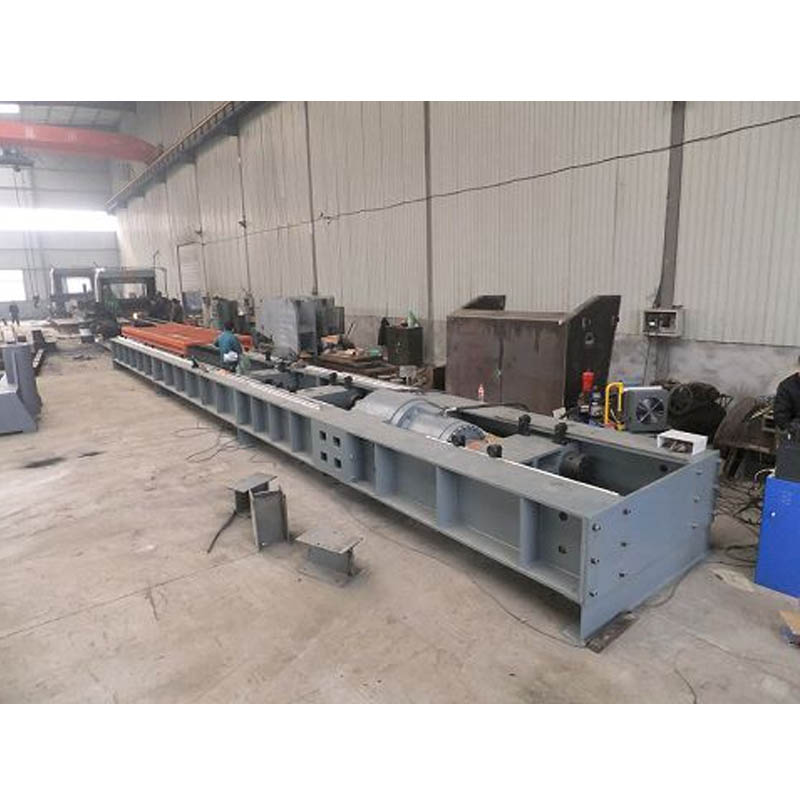Universal Tensile Testing Machine Manufacturer for Quality Material Strength Analysis
Universal Tensile Tester Machine A Comprehensive Overview
In today's industrial landscape, the importance of material testing cannot be overstated. Among the various testing methods, tensile testing stands out as a crucial process for assessing the mechanical properties of materials. At the heart of this testing methodology lies the universal tensile tester machine, a sophisticated device that plays an instrumental role in quality assurance and research across multiple sectors.
A universal tensile tester machine is designed to determine how materials respond to tensile (pulling) forces. Whether you're in the aerospace, automotive, construction, or manufacturing industry, understanding the tensile strength, elongation, and yield strength of materials is essential for ensuring safety and performance. This machine is equipped with advanced technology to measure these parameters accurately, providing vital data that can influence the design and selection of materials.
Construction and Functionality
Typically, a universal tensile tester machine comprises several key components a load cell to measure force, a crosshead that moves vertically, grip attachments for holding the specimen, and an extensometer for measuring elongation
. The machine's design allows it to accommodate a wide range of materials, from metals and plastics to textiles and composites.One of the standout features of a universal tensile tester is its versatility. By using different fixtures and grips, it can conduct various tests, including tensile, compression, bend, and shear tests. This adaptability makes it an invaluable tool in research laboratories and quality control departments alike. Furthermore, most modern machines are integrated with advanced software that can analyze data in real-time, producing reports that include stress-strain curves and other essential parameters.
Calibration and Accuracy
universal tensile tester machine factory

Accuracy is paramount in tensile testing, and thus, regular calibration of the universal tensile tester is crucial. Calibration ensures that the readings are precise and reliable, providing confidence in the data generated. Reputable manufacturers of these machines adhere to strict international standards, such as ISO 6892 and ASTM E8, ensuring that their equipment meets industry benchmarks.
Application and Importance
The applications of universal tensile testers are vast. In the automotive industry, for instance, they are used to evaluate the strength of components critical to vehicle safety. The aerospace sector relies on tensile testing to ensure that materials can withstand extreme conditions and stresses encountered during flight. In construction, testing materials like concrete and steel helps to guarantee the integrity and durability of structures.
Moreover, organizations that prioritize quality control utilize universal tensile testers as part of their material certification processes. By doing so, they can demonstrate that their products meet regulatory requirements and industry standards, thereby enhancing their reputation and ensuring customer satisfaction.
Conclusion
In conclusion, the universal tensile tester machine is a cornerstone of material testing, providing essential insights that drive innovation and safety across industries. As technology continues to advance, we can expect further improvements in the accuracy, speed, and capabilities of these machines. Companies that invest in high-quality tensile testing equipment will not only enhance their product reliability but also foster a culture of quality and excellence in their operations. The universal tensile tester isn't just a machine; it's a key to understanding the materials that shape our world.
-
Why the Conductor Resistance Constant Temperature Measurement Machine Redefines Precision
NewsJun.20,2025
-
Reliable Testing Starts Here: Why the High Insulation Resistance Measuring Instrument Is a Must-Have
NewsJun.20,2025
-
Flexible Cable Flexing Test Equipment: The Precision Standard for Cable Durability and Performance Testing
NewsJun.20,2025
-
Digital Measurement Projector: Precision Visualization for Modern Manufacturing
NewsJun.20,2025
-
Computer Control Electronic Tensile Tester: Precision and Power for the Modern Metal Industry
NewsJun.20,2025
-
Cable Spark Tester: Your Ultimate Insulation Assurance for Wire and Cable Testing
NewsJun.20,2025
 Copyright © 2025 Hebei Fangyuan Instrument & Equipment Co.,Ltd. All Rights Reserved. Sitemap | Privacy Policy
Copyright © 2025 Hebei Fangyuan Instrument & Equipment Co.,Ltd. All Rights Reserved. Sitemap | Privacy Policy
